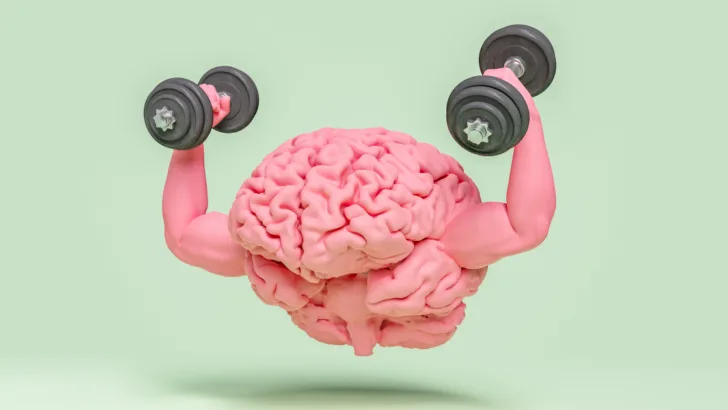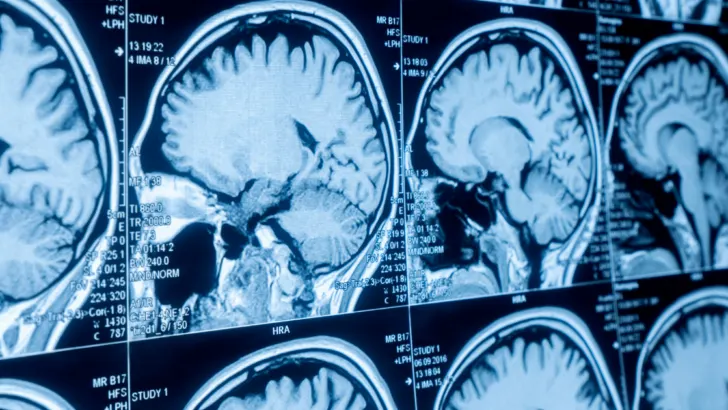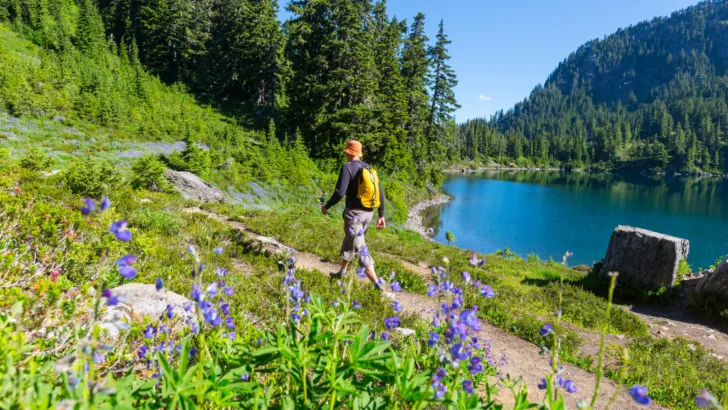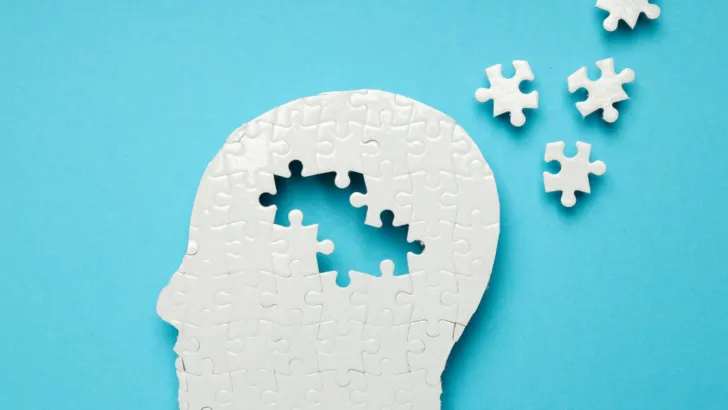Hiking is an excellent way to get outside and enjoy nature while also getting some exercise, but did you know that it can also benefit your brain? Research has shown that hiking can help improve cognitive function, memory, and attention span, among other brain functions!

Several studies have looked at the effects of hiking on brain health, and the results are promising. For example, hiking can help create new neural pathways between regions responsible for learning, memory recall, focus, attention span, problem-solving skills, and more. Plus, being outdoors exposes us to natural sunlight, which boosts our energy levels even further. In this article, I will explore the benefits of hiking for brain health and provide tips for maximizing these benefits.
Key Takeaways
- Hiking can benefit brain health by improving cognitive function, memory, and attention span.
- Hiking in nature as often as possible and challenging yourself mentally by hiking on new trails or trying new activities can help maximize the brain benefits of hiking.
- Hiking may also help prevent or delay the onset of Alzheimer’s disease, improve cognitive function in people with Parkinson’s disease, and reduce symptoms of depression and anxiety.
What Hiking Does to Your Brain
Hiking is not only a great way to stay active, but it can also have many benefits for your brain. As someone who enjoys hiking, I have experienced firsthand the positive effects it can have on my mental health. Here are a few ways that hiking can benefit your brain:
- Boosts mood: Hiking in nature can help to reduce stress and anxiety and improve your overall mood. The fresh air, sunshine, and natural surroundings can all contribute to a sense of calm and well-being.
- Improves cognitive function: Hiking can also help to improve cognitive function, including memory, attention, and creativity. Studies have shown that spending time in nature can increase blood flow to the brain, which can improve cognitive performance.
- Reduces risk of depression: Hiking has been linked to a reduced risk of depression. A study published in the Proceedings of the National Academy of Sciences found that people who walked for 90 minutes in a natural setting showed reduced activity in the part of the brain associated with depression.
- Increases resilience: Hiking can also help to build resilience, both physically and mentally. The challenges of hiking, such as navigating difficult terrain or dealing with unexpected weather, can help to build mental toughness and resilience.
- Provides a sense of accomplishment: Finally, hiking can provide a sense of accomplishment and boost self-esteem. Setting goals and achieving them, such as reaching the top of a mountain, can help to build confidence and a sense of pride in one’s abilities.

Overall, hiking is a great way to stay active and improve your mental health. Whether you’re a seasoned hiker or just starting out, spending time in nature can have many benefits for your brain.
The Benefits of Hiking for Brain Health
Hiking is not only a great way to exercise and enjoy nature, but it can also provide numerous benefits for brain health. In this section, I will discuss some of the ways that hiking can positively impact the brain.
Increases Brain Volume
Studies have shown that hiking can increase brain volume, particularly in the hippocampus, which is the area of the brain responsible for memory and spatial navigation. This increase in brain volume can lead to improved cognitive function and a reduced risk of cognitive decline in later life.
Improves Cognitive Function
Hiking has also been shown to improve cognitive function, including attention, memory, and problem-solving skills. This may be due to the increased blood flow and oxygenation to the brain during exercise, as well as the mental stimulation of being in nature.
Reduces Stress and Anxiety
Spending time in nature has been shown to reduce stress and anxiety levels, and hiking is no exception. The physical activity, fresh air, and peaceful surroundings can all contribute to a sense of calm and relaxation, which can have a positive impact on mental health.
Protects Against Dementia
Regular physical activity, including hiking, has been linked to a reduced risk of developing dementia in later life. This may be due to the protective effects of exercise on the brain, including increased brain volume and improved cognitive function.

Related Posts:
How Hiking Benefits Brain Health
As someone who loves hiking, I can attest to the fact that it is not only good for physical health but also for mental health. Here are some ways that hiking benefits brain health:
Exercise
Hiking is a form of aerobic exercise that gets the heart pumping and increases blood flow to the brain. This can help to improve cognitive function, including memory and attention span. Additionally, hiking can reduce stress and anxiety, which can have a positive impact on overall brain health.
Exposure to Nature
Spending time in nature has been shown to have a calming effect on the brain. Hiking allows for exposure to natural environments, which can help to reduce mental fatigue and improve mood. Additionally, exposure to sunlight during hiking can boost vitamin D levels, which is important for brain health.
New Experiences
Hiking can provide opportunities for new experiences and challenges. This can help to improve cognitive flexibility and problem-solving skills. Additionally, hiking can provide a sense of accomplishment and boost confidence, which can have a positive impact on mental well-being.

Related Posts:
Studies That Have Looked at the Effects of Hiking on Brain Health
As a writer interested in the effects of hiking on brain health, I have come across several studies that have looked at this topic. One study conducted by the University of British Columbia found that aerobic exercise, such as hiking, can increase the size of the hippocampus, the part of the brain responsible for memory and learning.
Another study published in the Journal of Environmental Psychology found that spending time in nature, including hiking, can improve cognitive function and reduce symptoms of anxiety and depression. The study suggests that exposure to nature can help restore our attentional capacity, which can be depleted by the constant demands of modern life.

A third study conducted by researchers at Stanford University found that walking in nature can lead to decreased activity in a region of the brain associated with depression. The study suggests that spending time in nature can have a positive impact on mental health.
These studies suggest that hiking can have positive effects on brain health, including improved cognitive function, increased hippocampal size, and reduced symptoms of anxiety and depression.
Related Posts:
Hike in Nature as Often as Possible
As someone who loves hiking, I can attest to the positive effects it has on my brain. Spending time in nature and away from the hustle and bustle of daily life can be incredibly refreshing and rejuvenating. Here are a few reasons why I recommend hiking in nature as often as possible:
- Reduces stress and anxiety: Being in nature has been shown to reduce levels of cortisol, the hormone associated with stress. Hiking also provides a sense of accomplishment and can help boost self-esteem, which can further reduce feelings of anxiety.
- Improves mood: Spending time in nature has been linked to improved mood and reduced symptoms of depression. Hiking can also provide a sense of adventure and excitement, which can be a great mood booster.
- Boosts creativity: Being in nature can help clear your mind and provide a fresh perspective, which can be especially helpful for creative endeavors. In fact, a study published in the journal PLOS One found that spending time in nature can improve creative problem-solving skills.
- Improves cognitive function: Hiking requires focus and attention, which can help improve cognitive function. Additionally, being in nature has been shown to improve memory and attention span.

Of course, not everyone has access to hiking trails or the ability to hike regularly. However, even spending a little bit of time in nature can be beneficial. Whether it’s a walk in the park or a hike in the mountains, I highly recommend getting outside and enjoying all that nature has to offer.
Challenge Yourself Mentally by Hiking on New Trails or Trying New Activities
As someone who loves hiking, I find that there’s always something new to discover on the trails. Whether it’s a new trail to explore or a new activity to try, hiking can be a great way to challenge myself mentally and keep things interesting.
One way to challenge yourself mentally while hiking is to explore new trails. Not only does this provide a change of scenery, but it also requires you to pay closer attention to your surroundings. When you’re on a familiar trail, it’s easy to slip into autopilot mode and not fully engage with your environment. But when you’re on a new trail, you have to be more aware of your surroundings, pay attention to trail markers, and navigate unfamiliar terrain. All of these things can help keep your mind sharp and engaged.

Another way to challenge yourself mentally while hiking is to try new activities. For example, if you’re used to hiking on well-maintained trails, you might want to try hiking on more rugged terrain. This can be more physically challenging, but it also requires you to use different muscles and engage with your environment in a different way. Similarly, if you’re used to day hikes, you might want to try backpacking or multi-day hikes. This requires more planning and preparation, but it can also be a great way to challenge yourself mentally and physically.
Of course, it’s important to challenge yourself in a way that’s safe and appropriate for your skill level. If you’re new to hiking or trying a new activity, start with something that’s within your comfort zone and gradually work your way up to more challenging hikes and activities. And always make sure you’re properly equipped and prepared for the trail.
Overall, hiking can be a great way to challenge yourself mentally and keep things interesting. Whether you’re exploring new trails or trying new activities, there’s always something new to discover on the trails.
Take Breaks Throughout Your Hike to Relax and Enjoy the Scenery
As I hike, I find it important to take breaks throughout my journey. Not only does it give me time to rest and recharge, but it also allows me to take in the beautiful scenery around me. Here are a few reasons why taking breaks during your hike is essential:
- Prevents overexertion: Hiking can be a strenuous activity, especially if you’re not used to it. Taking breaks will help prevent overexertion and exhaustion. It’s better to take a few minutes to rest and catch your breath than to push yourself to the point of exhaustion.
- Reduces stress and anxiety: Hiking is a great way to reduce stress and anxiety, but taking breaks can enhance this effect. When you take a break, you have the opportunity to connect with nature and focus on your surroundings. This can help you feel more relaxed and present in the moment.
- Allows time to refuel: When you’re hiking, it’s important to stay hydrated and nourished. Taking breaks gives you the opportunity to refuel with snacks and water. This will help keep your energy levels up and prevent dehydration.
- Enhances the overall experience: Hiking is not just about getting from point A to point B. It’s about the journey and the experience. Taking breaks allows you to fully immerse yourself in the beauty of nature and appreciate the scenery around you. It also gives you time to take photos, journal, or simply sit and enjoy the view.

In conclusion, taking breaks throughout your hike is essential for both your physical and mental well-being. It’s important to listen to your body and rest when you need to. By taking breaks, you’ll be able to fully enjoy the beauty of nature and enhance your overall hiking experience.
Hike with Friends or Family to Socialize and Make Memories
When it comes to hiking, there is no doubt that it can be a great way to get some alone time and clear your head. However, hiking with friends or family can also be a fantastic way to socialize and make memories that will last a lifetime. Here are a few reasons why:
- Shared experiences – Hiking with friends or family allows you to share the experience with others, which can make it all the more memorable. You’ll be able to reminisce about the beautiful scenery, the challenging terrain, and the fun times you had together.
- Laughter and bonding – Hiking with others can be a great way to bond and create a sense of camaraderie. You’ll be able to laugh together, share stories, and create inside jokes that will stick with you long after the hike is over.
- Motivation and support – Hiking with others can also provide motivation and support when you need it most. Whether you’re struggling with a difficult climb or feeling tired and sore, having someone there to encourage you and help you push through can make all the difference.
- Safety – Finally, hiking with others can also be safer than hiking alone. You’ll have someone there to help you if you get lost or injured, and you’ll be able to watch out for each other along the way.

Overall, while hiking alone can be a great way to get some solitude and clear your mind, hiking with friends or family can be just as rewarding. So next time you hit the trails, consider inviting some loved ones along for the journey.
Hiking May Help to Prevent or Delay the Onset of Alzheimer’s Disease
As I researched the benefits of hiking, I came across several studies that suggest that hiking may help to prevent or delay the onset of Alzheimer’s disease. Here’s what I found:
Physical Activity and Brain Health
Physical activity has been shown to have many health benefits, including reducing the risk of chronic conditions like depression, diabetes, and high blood pressure. But did you know that it can also benefit your brain health? According to a study published in the Journal of Alzheimer’s Disease, regular physical activity, such as hiking, can help to reduce the risk of cognitive decline and dementia.
Hiking and Cognitive Reserve
Another study published in the journal Neurology found that hiking and other forms of physical activity can help to build cognitive reserve, which is the brain’s ability to function normally despite damage from Alzheimer’s disease. The study found that people who participated in regular physical activity had a larger brain volume and better cognitive function than those who did not.

Nature and Brain Health
In addition to the physical benefits of hiking, spending time in nature has also been shown to have positive effects on brain health. A study published in the International Journal of Environmental Research and Public Health found that spending time in nature can help to reduce stress and improve mood, which can have a positive impact on cognitive function.
Overall, while more research is needed, the evidence suggests that hiking may be a beneficial activity for brain health and may help to prevent or delay the onset of Alzheimer’s disease. So, lace up your hiking boots and hit the trails to reap the benefits for your body and mind.
Hiking May Help to Improve Cognitive Function in People with Parkinson’s Disease
As someone who has Parkinson’s disease, I know how difficult it can be to manage the cognitive changes that come with the condition. But did you know that hiking may help to improve cognitive function in people with Parkinson’s disease?
Research has found that hiking and other forms of exercise can have positive effects on cognitive function. In fact, just 20 to 30 minutes of brisk walking daily can help Parkinson’s symptoms, such as gait, balance, tremors, and flexibility. When you hike, you’re not only getting exercise, but you’re also experiencing subtle changes in the terrain that test your balance and cognition, such as walking on uneven surfaces and navigating turns.

One study published in the Journal of Parkinson’s Disease found that hiking can improve cognitive function in people with Parkinson’s disease. The study followed a group of people with Parkinson’s disease who participated in a hiking program for 12 weeks. The results showed that the hiking program improved attention, working memory, and executive function in the participants.
Another study published in the Journal of Alzheimer’s Disease found that hiking can also improve brain function in people with mild cognitive impairment. The study followed a group of older adults with mild cognitive impairment who participated in a hiking program for 12 weeks. The results showed that the hiking program improved cognitive function and increased the size of the hippocampus, a part of the brain that is important for memory and learning.
While more research is needed to fully understand the benefits of hiking for people with Parkinson’s disease, these studies suggest that hiking may be a promising way to improve cognitive function and overall well-being. So, if you’re looking for a fun and challenging way to stay active and improve your cognitive function, consider hitting the trails!
Hiking May Help to Reduce Symptoms of Depression and Anxiety
As someone who has struggled with depression and anxiety, I have found hiking to be a helpful tool in managing my symptoms. It is not a cure-all, and therapy and medication are still necessary for many people, but hiking can be a valuable addition to a mental health treatment plan.
Research has shown that spending time in nature can have a positive impact on mental health. A study conducted by Stanford University found that participants who walked in a natural area showed decreased activity in a region of the brain associated with depression, compared to those who walked in a high-traffic urban setting.

Hiking can also help to reduce symptoms of anxiety. When we experience anxiety, our bodies produce adrenaline to cope with perceived danger. If the adrenaline is not released, it can accumulate and cause muscle tension and more anxiety. Hiking is a way to release that adrenaline in a healthy and accessible way.
In addition, hiking provides an opportunity to practice mindfulness. Being present at the moment and focusing on the sights, sounds, and sensations of the natural world can help to quiet anxious or negative thoughts. It can also provide a sense of accomplishment and boost self-esteem, which can be particularly helpful for those struggling with depression.
Of course, hiking is not a one-size-fits-all solution. It may not be accessible or enjoyable for everyone, and it should not be used as a substitute for professional treatment. However, for those who are able and interested, hiking can be a helpful tool in managing symptoms of depression and anxiety.
Tips for Maximizing the Brain Benefits of Hiking
As someone who has experienced the brain benefits of hiking firsthand, I have a few tips to share on how to maximize those benefits:
- Choose a challenging trail: While any hike is better than no hike, choosing a trail that challenges you physically and mentally can provide even greater benefits for your brain. Look for trails with varied terrain, inclines, and obstacles to really get your brain working.
- Take breaks to appreciate your surroundings: Hiking is not just a workout for your body, but also an opportunity to connect with nature. Take breaks along the way to appreciate the scenery, listen to the sounds of the forest, and breathe in the fresh air. These moments of mindfulness can help reduce stress and improve your mood.
- Bring a hiking buddy: Hiking with a friend or family member can provide even greater brain benefits. Engaging in conversation and social interaction while hiking can improve cognitive function and memory.
- Stay hydrated and nourished: Drinking plenty of water and eating nutritious snacks can help keep your brain functioning at its best. Dehydration and hunger can lead to fatigue, headaches, and decreased cognitive function.
- Challenge your senses: Hiking provides an opportunity to engage all of your senses. Take the time to touch the bark of a tree, smell the wildflowers, and listen to the birds. Engaging your senses can help improve brain function and memory.

By following these tips and incorporating hiking into your regular routine, you can maximize the brain benefits of this enjoyable and accessible form of exercise.
Information About How Hiking Can Help Prevent or Treat Specific Neurological Conditions
As I researched the benefits of hiking on the brain, I discovered that it can also help prevent or treat specific neurological conditions. Here are some of the ways hiking can be beneficial:
Migraines
Hiking can help reduce the frequency and intensity of migraines. It does this by reducing stress levels, which is a common trigger for migraines. Additionally, hiking can help increase blood flow and oxygen to the brain, which can also help reduce the likelihood of migraines.
Multiple Sclerosis
Hiking can be helpful for individuals with multiple sclerosis (MS). It can help improve balance, coordination, and overall mobility. Additionally, hiking can help reduce fatigue levels, which is a common symptom of MS.
Parkinson’s Disease
Hiking can be beneficial for individuals with Parkinson’s disease. It can help improve balance, coordination, and overall mobility. Additionally, hiking can help reduce tremors and stiffness, which are common symptoms of Parkinson’s disease.
Stroke
Hiking can be helpful for individuals who have had a stroke. It can help improve balance, coordination, and overall mobility. Additionally, hiking can help improve cardiovascular health, which can help reduce the likelihood of future strokes.
Traumatic Brain Injury
Hiking can be beneficial for individuals who have experienced a traumatic brain injury (TBI). It can help improve balance, coordination, and overall mobility. Additionally, hiking can help improve cognitive function, such as memory and attention.
Overall, hiking can be a great way to improve brain health and prevent or treat specific neurological conditions. However, it’s important to consult with a healthcare provider before starting any new exercise program, especially if you have a pre-existing medical condition.
Conclusion
In conclusion, hiking is a great way to improve cognitive function, creativity, and problem-solving skills. Research has shown that exercise, including hiking, can benefit the brain and even turn back the clock in adults with mild cognitive impairment.
Hiking on uneven terrain has been found to use 28% more energy than walking on flat ground, which can help improve physical fitness. Being in nature has also been shown to reduce stress, anxiety, and depression, making hiking a great way to improve mental health.

As someone who enjoys hiking, I can attest to the positive effects it has on my own mental and physical well-being. Spending time in nature and getting exercise helps me clear my mind and feel more energized.
In summary, hiking is a simple and enjoyable way to improve both mental and physical health. Incorporating hiking into your routine can have a positive impact on your overall well-being.
Frequently Asked Questions
How does regular hiking impact mental health?
Regular hiking can have a positive impact on mental health by reducing symptoms of anxiety and depression. It can also improve mood and self-esteem, leading to an overall sense of well-being. Hiking provides an opportunity to disconnect from technology and the stresses of daily life, allowing for mindfulness and relaxation.
What are the psychological benefits of hiking?
Hiking has several psychological benefits, including reducing stress, improving cognitive function, and boosting creativity. It can also increase feelings of happiness and satisfaction, leading to a more positive outlook on life.
Can hiking improve cognitive function?
Yes, hiking can improve cognitive function by increasing blood flow to the brain and stimulating the growth of new brain cells. It can also improve memory and attention span, leading to better problem-solving skills and overall cognitive performance.
What are the physical benefits of hiking compared to other forms of exercise?
Hiking is a low-impact exercise that can improve cardiovascular health, build muscle strength, and increase endurance. It can also help with weight loss and reduce the risk of chronic diseases such as diabetes, heart disease, and high blood pressure.
What does the research say about the effects of hiking on the brain?
Research suggests that hiking can have a positive impact on the brain by reducing symptoms of depression, improving cognitive function, and increasing feelings of well-being. It can also lead to increased creativity and a greater sense of connection to nature.
How does spending time in nature while hiking affect the brain?
Spending time in nature while hiking can have a calming effect on the brain, reducing stress and anxiety. It can also improve mood and increase feelings of happiness and well-being. Being in nature can also stimulate the senses and provide a sense of awe and wonder, leading to a greater appreciation for the natural world.
Related Posts:
